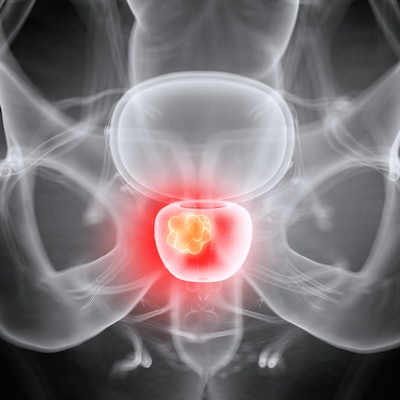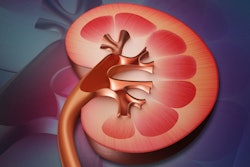
PET/CT scans in patients with prostate cancer may increase costs in Europe and the U.S., yet these costs may be reasonably low compared to the potential expenses of an inaccurate diagnosis, according to a recent study.
A team led by Adrien Holzgreve, MD, of LMU University Hospital in Munich and colleagues at the University of California, Los Angeles studied the costs for prostate-specific membrane antigen (PSMA) PET/CT scans at selected centers in Belgium, Germany, Italy, the Netherlands, and the U.S. While primary staging PSMA-PET/CT increased costs compared to conventional imaging, these increases may be acceptable, the authors noted.
"We assume that the use of PSMA PET/CT is appropriate from a health economic perspective as the costs for an accurate diagnosis using PSMA PET/CT seemed reasonably low compared to the potential consequential costs of an inaccurate diagnosis," the group wrote in a study published on July 10 in the European Journal of Nuclear Medicine and Molecular Imaging.
Primary staging refers to the process of determining how much cancer is in a patient's body and where it is located. PSMA-PET/CT has been adopted worldwide as an imaging modality for prostate cancer and has shown a promising role for this purpose, the authors explained.
In 2020, the group published results of a study in Australia called the proPSMA trial. The study showed that PSMA PET/CT provided superior accuracy to the combined findings of CT and bone scanning. The study included a cost-effectiveness analysis that showed the benefits of PSMA PET/CT over conventional imaging.
With comparable data for other countries lacking, the authors applied the framework of the proPSMA trial to assess the cost-effectiveness of PSMA PET/CT in several European countries and the U.S. Costs for PSMA PET/CT and conventional imaging (abdomen and pelvis CT with IV contrast, and whole-body planar bone SPECT scans from chest to pelvis) were collected based on national reimbursement rates and information from single healthcare centers.
In the selected centers in Europe and the U.S., costs for PSMA PET/CT exceeded costs for conventional imaging. The differences ranged from minor in the Belgian center (incremental increases of $50 per patient) to moderate in the German and Italian centers ($524 and $936) and distinct in the Dutch and U.S. centers ($2,357 and $3,277), according to the findings.
However, despite these estimated increases compared to conventional imaging, the costs associated with less accurate exams could be higher, they noted. In patients with oligofocal osseous metastases, for instance, the early detection of additional nodal and visceral tumors by PSMA-PET/CT could prevent unnecessary local treatments or costly radium-223 therapy and guide earlier systemic treatment, they suggested.
Ultimately, these are preliminary results, the authors noted.
"This is the first study to analyze cost-effectiveness of PSMA PET/CT compared to conventional imaging based on results of the proPSMA trial for the European and the U.S.-American settings," the researchers wrote.
The findings will need to be verified by a prospective evaluation of PSMA-PET/CT in patients at initial diagnosis of prostate cancer, the group concluded.
Read the full article in the European Journal of Nuclear Medicine and Molecular Imaging.





















